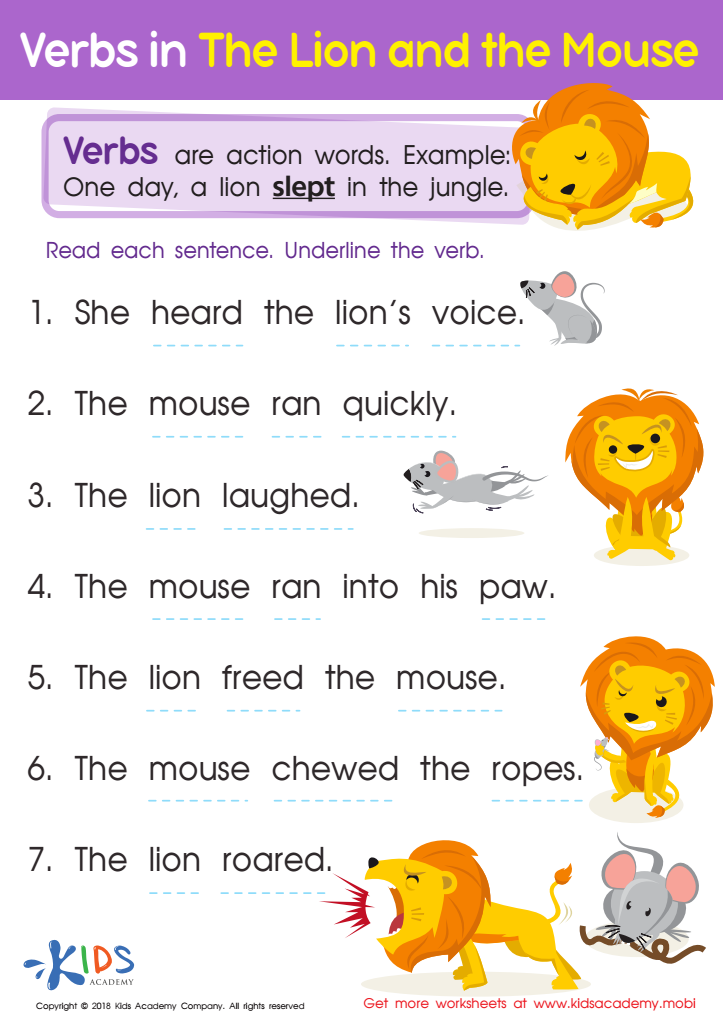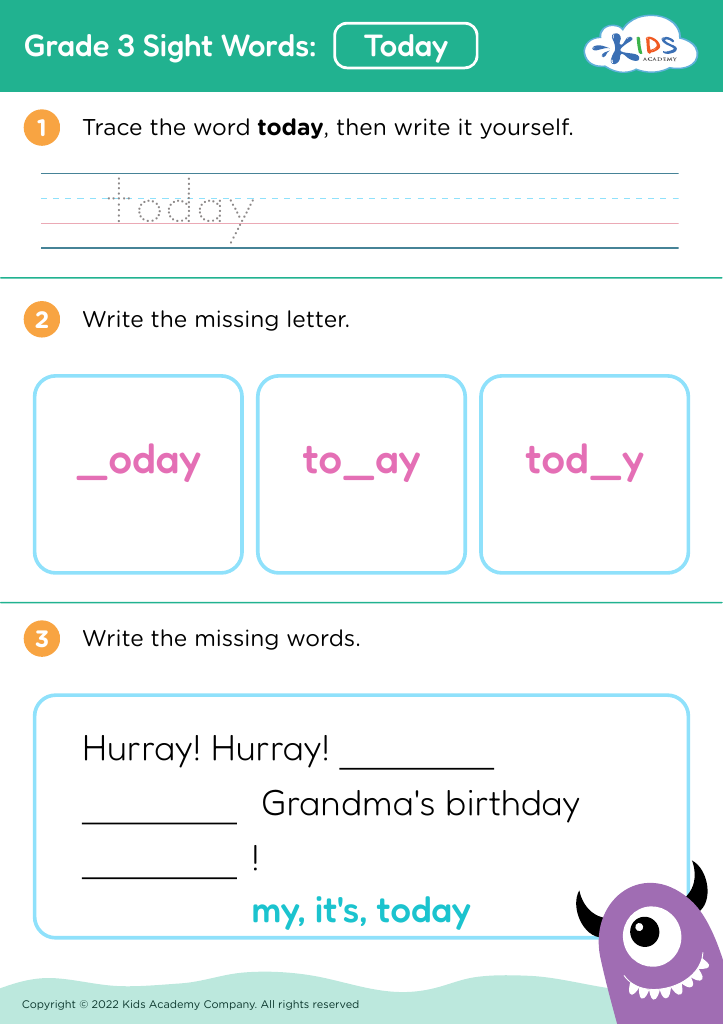Story interpretation Worksheets for Kids
2 filtered results
-
From - To


Verbs in The Lion and the Mouse Worksheet
Question/Answer
Why is the Story interpretation skill important for Grade 3 students?
The Story interpretation skill is crucial for Grade 3 students because it enhances their reading comprehension, critical thinking, and creativity. By learning to interpret stories, they can better understand themes, characters, and plot, which improves their ability to engage with texts meaningfully. This skill also fosters empathy and emotional intelligence by encouraging students to see the world from different perspectives.
What are some effective activities to train students’ Story interpretation skill when teaching them about Sight Words?
Effective activities include using fill-in-the-blank stories with missing sight words, creating sight word flashcards for interactive storytelling, using picture prompts for sight word story creation, engaging in group story building with a focus on sight words, and implementing digital storytelling apps that emphasize sight word usage. These activities enhance comprehension and vocabulary in context, reinforcing sight word recognition.
How to train the Story interpretation skill in Grade 3 students learning about Sight Words?
To train the Story interpretation skill in Grade 3 students learning about Sight Words, engage them in reading simple stories featuring sight words. Follow up with discussions about the plot, characters, and setting. Ask comprehension questions and encourage students to make predictions.
 Assign to the classroom
Assign to the classroom













